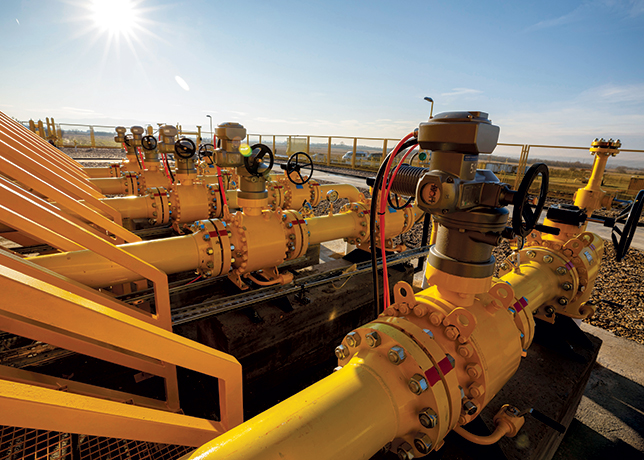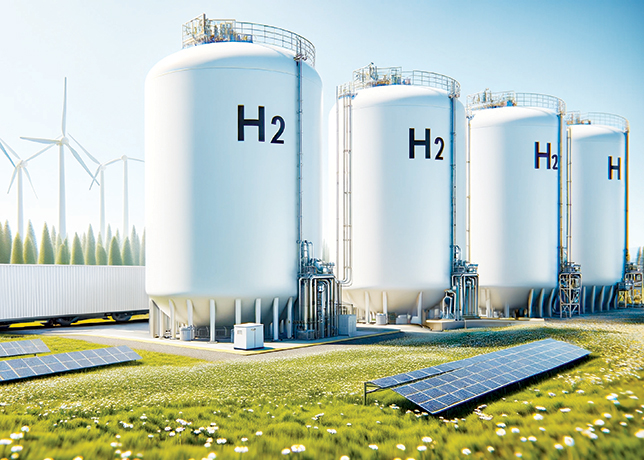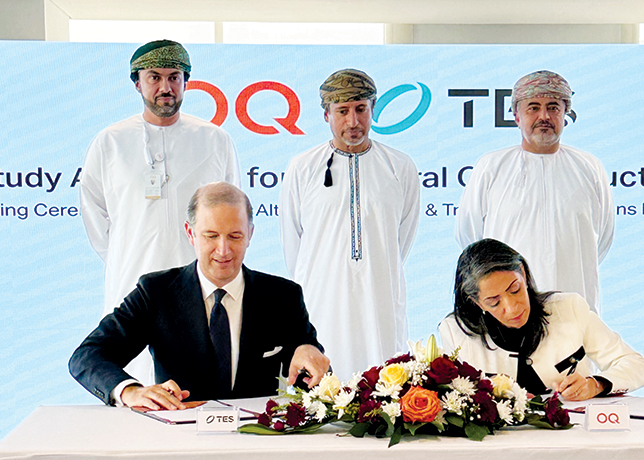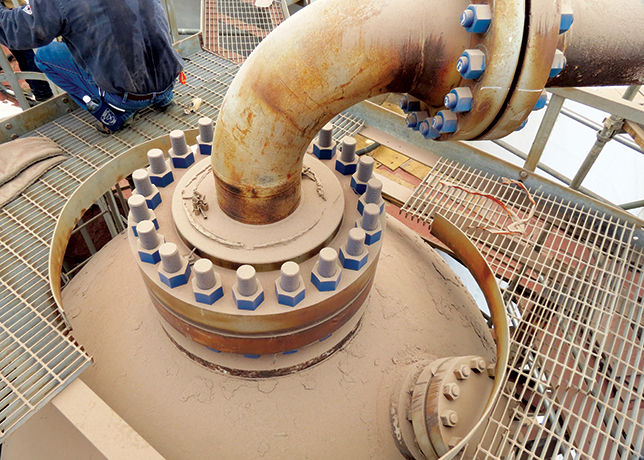
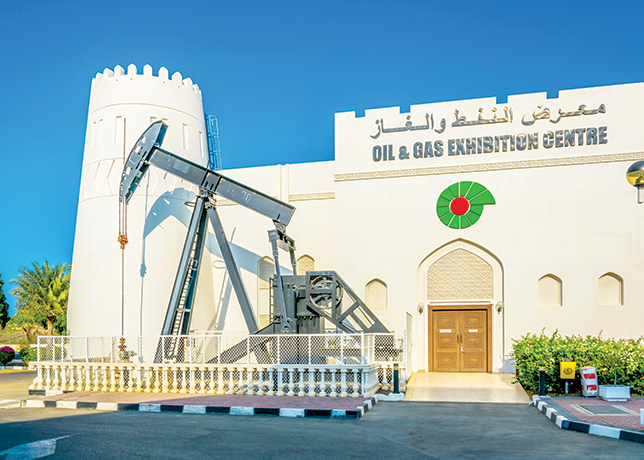 Oman's oil and gas sector drives GDP growth
Oman's oil and gas sector drives GDP growth
The Sultanate's oil and gas sector is vital, contributing 72 per cent to GDP and achieving a 90 per cent Omanisation rate. Meanwhile, investments by OQ have increased reserves and production, driving economic stability and growth
Oman's oil and gas industry is a cornerstone of the country's economy, contributing 72 per cent to its GDP. It not only drives economic growth but also fosters development stability and finances numerous government programmes.
The industry has a 90 per cent Omanisation rate among its operating companies, while small and medium enterprises (SMEs) benefit from the sector’s procurement spending, with approximately 16 per cent of the total value of purchases and tenders allocated to SMEs.
Investments in exploration and enhancing reserves are ongoing, with Oman’s oil reserves increasing by 1 per cent to 4,971.1 million barrels and natural gas reserves standing at approximately 23.1 trillion cubic feet by the end of 2023.
Oman’s crude oil reserves reached 4.971 billion barrels by the end of 2023, with 309.4 million barrels added through 15 development and 39 exploratory wells.
 |
OQ8 will significantly boost Oman's diesel export capabilities |
The Sultanate produced approximately 388.8 million barrels of crude oil and condensates, achieving an average daily production of 1.064 million barrels.
Oman’s gas sector produced 48.553 million cu m of non-associated natural gas in 2023, up by 2.4 per cent from 2022.
Total gas production and imports increased by 1.3 per cent to 49.703 million cu m. The country has substantial gas reserves, with 23.114 trillion cu ft of non-associated gas and 1.354 trillion cu ft of associated gas.
Leading that energy drive is OQ, the global integrated energy group, which plays a pivotal role in advancing Oman's oil and gas sector through strategic investments, innovative technologies, and sustainable practices.
OQ's efforts have been instrumental in enhancing exploration activities, increasing reserves, and optimising production processes, thereby ensuring the stability and growth of the industry.
GROWTH MILESTONES & OPERATIONAL EXCELLENCE
Following OQ’s remarkable financial results in 2022, the group continued to showcase resilience and strategic growth throughout 2023, particularly in the face of challenging and volatile markets experienced during the second quarter.
This steadfast performance is evident in its earnings before interest, taxes, depreciation and amortisation (EBITDA) of $5.137 billion and a net profit of $2.518 billion for the year.
In 2023, OQ marked the third consecutive year of strong financial performance. The group's solid operational performance and commitment to financial discipline were crucial in navigating turbulent market conditions.
The impressive financial results were further bolstered by proceeds from key privatisation initiatives, including attracting foreign investors to Blocks 48 and 60, and divesting Gulf Energy Maritime (GEM).
The increased oil production, supported by high Oman Export Blend (OEB) prices, consistent operational performance, and cost optimisation across business units, played a significant role in these achievements.
Moreover, OQ’s divestment milestones, such as selling its 30 per cent stake in Vale Oman, which became a 100 per cent foreign-owned company, were instrumental in driving financial success.
In line with Oman Vision 2040, which aims to empower the private sector and attract foreign direct investment, OQ achieved several significant divestment milestones.
The successful IPO of Abraj Energy Services in February 2023, resulting in an 8.7x oversubscription, and the IPO of OQ Gas Networks (OQGN) in October, which became the largest IPO listing in the history of Muscat Bourse, highlighted OQ’s focus on asset rationalisation and partnership development.
These divestments and IPOs are part of OQ’s strategic efforts to attract international expertise and contribute to the development of the Omani capital markets.
OQ maintained its growth trajectory by achieving several landmark milestones in 2023. The inaugurations of the OQ Ammonia Plant in Salalah and the Bisat Oil Field within Block 60 in January enabled OQ to achieve an 11 per cent increase in daily production compared to 2022, reaching an average of 246,000 barrel of oil equivalent per day (boe/d) in 2023.
The group also progressed several growth projects from the construction phase to operational phases.
The Oman Tank Terminal Company (OTTCO) in Duqm completed 19 shipments and transferred 26.6 million barrels of oil through its pipeline to OQ8 in 2023.
Additionally, OQ Alternative Energy advanced several projects, including signing project development agreements with Hydrom for the Hyport and Green Energy Oman (GEO) projects.
OQ’s emphasis on operational excellence was highlighted in the upstream sector, with the early on-stream of Block 10 and the consistent performance from OQ Exploration and Production (OQ EP)’s existing blocks, leading to an annual production target exceedance.
On the commercial and downstream front, the Duqm refinery achieved its first on-spec diesel production in 2023, ahead of the 2024 opening.
Called, OQ8 – a 50:50 partnership of OQ Group and Kuwait Petroleum International – commenced commercial operations in February this year after six years of development.
With a production capacity of 230,000 barrels per day, the refinery focuses on middle distillates, including jet fuel, gasoil, and diesel, and will significantly boost Oman's diesel export capabilities, leveraging its strategic location to serve markets in both the East and West, particularly the emerging African market.
ALTERNATIVE ENERGY & SUSTAINABILITY INITIATIVES
Oman is committed to reducing carbon emissions and achieving net zero emissions by 2050. The country has implemented sustainable initiatives and comprehensive environmental legislations, including protecting groundwater wells and safeguarding oil production sites.
Oman has signed international initiatives to reduce emissions in the oil and gas industry, including the World Bank’s 'Zero Routine Flaring by 2030' initiative.
OQ is committed to achieving net-zero emissions by 2050. By 2030, OQ targets a 25 per cent reduction in absolute/intensity emissions from the 2021 baseline.
The OQ Alternative Energy (OQAE) is leading the group’s sustainability and decarbonisation efforts, focusing on energy efficiency, clean energy, and low carbon molecules (LCM).
In 2023, OQAE expanded partnerships to de-risk existing green hydrogen projects, aligning with Oman’s and OQ’s ambitious net-zero goals.
Significant milestones were achieved in decarbonisation. A digital greenhouse gas inventory covering OQ’s entire portfolio was implemented, laying the groundwork for future automation and enabling transparent reporting and proactive emissions reduction planning.
OQ surpassed its energy intensity reduction target in 2023, achieving a year-to-date score of 96.2 against the set target of 97.2 in its refineries, resulting in savings of $8.5 million from enhanced energy efficiency across assets.
OQ outlined an energy efficiency roadmap for 2024 and beyond, aiming to further reduce the Energy Intensity Index (EII) of its assets.
The Group is developing a pipeline of projects targeting over 5 GW growth by 2030, with more than 400 MW of renewable power projected to reach Final Investment Decision (FID) within 2024.
OQAE made significant progress in the green hydrogen sector, signing project development agreements with Hydrom for Hyport Duqm, Green Energy Oman (GEO), and SalalaH2.
A concept study for a green hydrogen refueling station (GHRS) pilot project was concluded, aiming to test technologies and develop green hydrogen project experience.
Sustainability is central to OQ’s strategic and investment decisions. In 2023, the group selected top ESG priorities, including decarbonisation, responsible procurement practice, responsible water management, occupational health and safety, diversity, equity, and inclusion, and impactful corporate social investment (CSI).
These priorities serve as a roadmap for sustainability efforts, ensuring a positive impact on the environment and the communities where OQ operates.
OQ commits to robust water conservation and optimisation strategies, guided by a central data hub for water-related information across all operational assets, in alignment with Oman’s Vision 2040 and sustainable development goals (SDGs).
LOCAL DEVELOPMENT
Oman’s oil and gas companies are dedicated to maximising commitment to in-country value (ICV) by ensuring a sustainable supply chain, nurturing local talent, and supporting the growth of SMEs. These efforts align with Oman’s Vision 2040, aiming to build a sustainable economy and enhance the oil and gas sector's contribution to the national economy.
OQ’s commitment to supporting local businesses in Oman was evident in 2023, with the Group’s local spend value exceeding $1 billion, amounting to 77 per cent of its total procurement spend.
OQ RPI signed nine agreements worth $88 million for industrial projects within the Ladayn Polymer Park in Sohar, further anchoring the Group’s dedication to developing local markets and products.
OQ's procurement procedures and practices enhance opportunities for local SMEs, contributing to the growth of the local economy. The total procurement spend was $1.371 billion, with a local spend of $1.059 billion. The ICV retained value was 31.9 per cent, amounting to $437.4 million, with $245.4 million allocated to SME spend.
COMMITMENT TO EMPLOYEE WELFARE
OQ places a high value on the welfare of its staff, considering employee satisfaction and motivation as key factors for performance and contribution to the group’s success.
In 2023, OQ achieved 83 per cent Omanisation, representing over 50 nationalities, with 86 per cent male and 14 per cent female employees.
The Group aims to enhance the visibility of women in leadership roles through initiatives such as the Women@OQ platform.
More than 200 employees completed OQ’s two-year graduate programme, over 300 were enrolled in the Masar leadership development programme, and about 900 interns were hosted.
By Abdulaziz Khattak



















































































